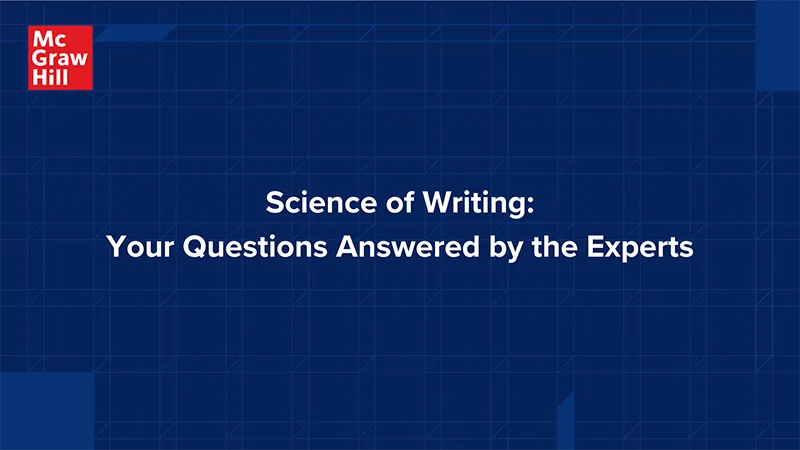My Account Details
The Science of Writing
Why is research-based writing instruction important?
As we continue learning more about research-based reading instruction, teaching students to write in ways aligned with research should also be considered more explicitly.
Learning to write is a key part of literacy education, and teaching students to write is teaching students to express themselves, to communicate, to explore ideas, and to think critically.

The reading and writing connection.
Reading and writing are both methods of communication built upon similar skills and knowledge. What you do to support student’s reading skills also supports their writing, and vice versa. In fact, effective writing instruction has been proven to improve students’ reading comprehension and fluency.
The reading and writing connection.
Reading and writing are both methods of communication built upon similar skills and knowledge. What you do to support student’s reading skills also supports their writing, and vice versa. In fact, effective writing instruction has been proven to improve students’ reading comprehension and fluency.

Pillars of an effective writing program.
As research grows on the Science of Writing, teachers can continue to implement strategies to develop their students’ writing skills. This includes offering explicit instruction in the writing process, devoting ample time for students to practice writing on their own, and providing opportunities to improve students’ writing through collaboration and peer feedback.
Effective writing instruction is explicit. Some students may be able to discover how to write on their own, but learning is more certain and equitable with explicit teaching.
Fuel Your Knowledge
Take your Science of Writing knowledge to the next level with insights from our experts.

, Link will open in a new window
Learn more about the Science of Writing in these articles from Literacy experts.

, Link will open in a new window
Listen to conversations with Dr. Steven Graham, Dr. Karen Harris and Dr. Young-Suk Kim.

, Link will open in a new window
Learn about the 10 key elements of an effective writing program, from Literacy Expert and McGraw Hill Author, Dr. Timothy Shanahan.